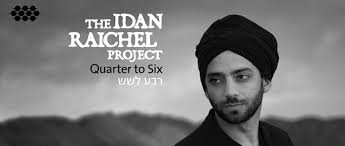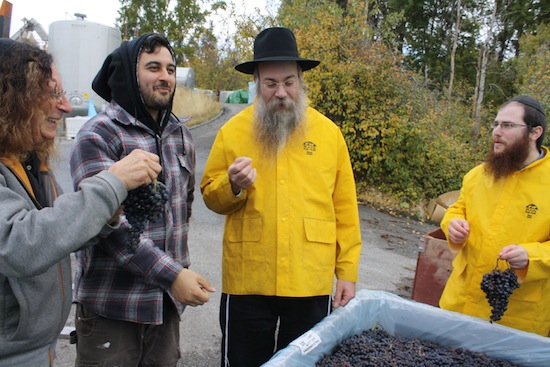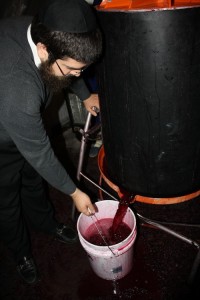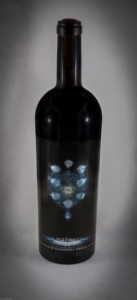Idan Raichel performs for one night only at the Vogue Theatre on May 12. (photo by Eldad Rafaeli)
Vancouver audiences are in for a treat next month when Israeli musician and uber-producer Idan Raichel together with the ensemble of international musicians that comprise the Idan Raichel Project perform for one night only at the Vogue Theatre on May 12.
The IRP’s unique sound – a blend of African, Middle Eastern, Indian and Latin American rhythms and instruments, is familiar to Vancouver audiences. Their three previous tour stops here – also presented by the Chutzpah! Festival – were sold out well in advance. This time, in addition to old favorites, audiences will be treated to some songs from Raichel’s latest and most successful album to date, A Quarter to Six, released in late 2013 to enthusiastic reviews from music critics and fans, sky-rocketing to double-platinum status within two months of its release.
The album’s title, taken from a work by Israeli dramatist Yossi Banai, refers to the twilight hour, a time of transition from day to night. “This is a very special time in Israel, the change of the day … you can think about what has happened up until now, also what could happen,” explained Raichel, who spoke with the Jewish Independent from his home in Tel Aviv. “The hour of the day that is like the crossroads in life…. After 10 years with the Project, I feel we have reached this time … of change, a transition, both musically and personally.
“A Quarter to Six [is] a kind of closure,” mused the artist. “It speaks about the crossroads we have in life. I don’t know if it’s age, or different perspectives, but we all have it about life … it doesn’t have to be a matter of age, you can feel this crossroads when you are 15 or 50.”
More than a collection of songs, the album is what Raichel terms “a complete piece of art,” as it includes a booklet of small paintings that he has been working on for the past two years. This album “is a big musical journey – inside my life spiritually and outside, touring and collaborating with [musicians] from Germany, Portugal, Columbia. The thing that touches me the most is that people see each song fits … [it’s] part of a story and they are listening from start to finish, writing comments about the booklet.” The songs are “not just singles,” he continued. “Every song is a script in a movie, every scene is singing about the situation that he or she is in. At concerts, I see kids and their parents, grandparents with kids coming, it’s reaching a wide audience…. The first time this is a full album that goes deeply into the theme of crossroads in life.”
While the format of this album differs from previous recordings, what hasn’t changed is Raichel’s unique sound, created in part by the collaboration with international musicians. A Quarter to Six brings together an eclectic mix of voices, languages and musical disciplines with guest artists that include German counter tenor Andreas Scholl, Colombia’s Marta Gómez, Portuguese fado star Ana Moura, Arab-Israeli singer/songwriter Mira Awad, Malian singer and guitarist Vieux Farka Touré, and a selection of some of Israel’s top up-and-coming singers and musicians. Raichel wrote all the melodies and lyrics but collaborated with each artist, allowing them to interpret and adapt their song to their own personal style.
This latest record is a very personal album – mirroring the very real crossroads that Raichel faces at this stage of his life and career. The 36-year-old recently settled down with his steady girlfriend, became a father and – in a move that elicited some very strong reactions from fans across the world – cut off his trademark dreadlocks. Raichel agreed that in retrospect the album foreshadowed his own transition into adulthood.

“Is it personal? When I wrote the album, I still had my dreadlocks, I was on and off in my relationship with my lady but somewhere inside I knew it was time to make decisions, to change things. I knew … I have to shave my dreadlocks after 14 years, I knew we were on and off but I knew I wanted her to be the mother of my kids.… Later on, it was natural. One month after the album was released, we knew that we were pregnant, things were happening.”
Having a child has opened Raichel up to a whole new world. Having a baby “gives me such a perspective about life…. I just enjoy this miracle, see how she develops and discovers new things every day…. It opens my appetite for more young creatures, maybe another nine or so. I wish!” But Raichel and his Austrian girlfriend, Damaris, are not planning on adding to their brood just yet. Their baby girl, Philipa Helena Damaris Raichel, remains with her mom in Israel while Raichel is on the road. “Damaris and the baby won’t tour with me…. I think it’s good to separate things. On the road, everyone has stuff to do. I don’t want them to feel forced to have to wake up early or, you know, to see the concerts every night.”
IRP’s blend of international musicians and sounds has put it at the forefront of the world music scene. In addition to that, Raichel calls the Project’s music “the soundtrack of Israel,” adding that the group plays the role of cultural ambassador for Israel. “The definition of world-music artist can change from one time to another, but world-music artists bring the soundtrack of where they come from. For example, Bob Marley is the voice of Jamaica; Edith Piaf, the voice of France; or like Miriam Makeba is the voice of South Africa. We feel honored when people describe our music as the soundtrack of Israel. If people don’t know anything about our country but can remember our music … especially people from conflict regions, then they see the other side of our culture.“
The past year has been a banner one for Raichel, who performed privately for Barack Obama during his state visit to Israel, appeared with French superstar Patrick Bruel and was awarded ACUM’s Composer of the Year 2013. To top it off, the popular Israeli entertainment magazine Pnai Plus named Raichel “Man of the Year.” Far from finding this flattering, the title made the unexpectedly humble musician feel uncomfortable. “Well, I was speechless then, and I’m speechless now,” he said. “In such a crazy country like ours, with so much happening every day, even every half day … how weird it [is] to get this recognition. I think a better Man of the Year would be … there is the story of one of the army commanders, he lost his two hands in an explosion and, a few months after that, he came back to the army to lead [his soldiers] again.” He added, “Just the struggle, even if it wasn’t an army, even if it was a soccer team … I don’t know, to see the power of good will, how strong you can be facing such trauma, how you can not give up to depression or pain or disappointment, that was an inspiration, I guess.”
Raichel said there is “a lot of good music coming from the Israeli music scene” nowadays. “It’s becoming more and more open to sounds from all over. Back in the day, you would hear less of the Yemenite roots, Middle Eastern influences,” it was “mostly Ashkenazi music.” And while he enthused about Israel’s modern musicians, mentioning DJ Avishai Cohen and Yemen Blues in particular, he still enjoys the music of Arik Einstein and Shoshana Damari. “Now, there are so many more radio stations, for more artists. Today, you hear music that more reflects the sound of the Israeli melting pot.”
Chutzpah! Festival artistic managing director Mary-Louise Albert said audiences are in for a whole new experience at the May 12 concert. “I have brought Idan back because it builds his audience here in Vancouver and I’m committed to supporting many artists beyond just presenting them one time. Artists develop and grow, so audiences get to experience this growth also when an artist performs multiple times.” With its 10-member ensemble (the largest of IRP’s Chutzpah! engagements), Albert said the Vogue Theatre is the perfect showcase for this high-energy, “plugged-in” event. “Vancouver audiences have not experienced this show before,” she said.
Opening for IRP is Vancouver’s Babe Gurr, who will showcase songs from her current album, SideDish, a unique blend of world music and her own roots style that has earned Gurr glowing reviews and a strong following.
Nicole Nozick is a Vancouver-based freelance writer and communications specialist.






